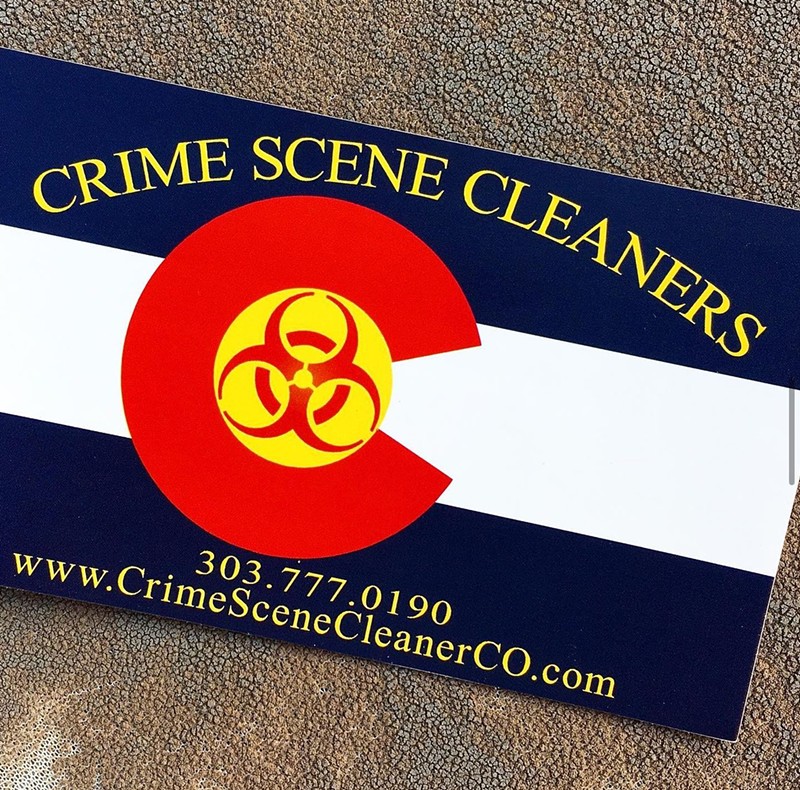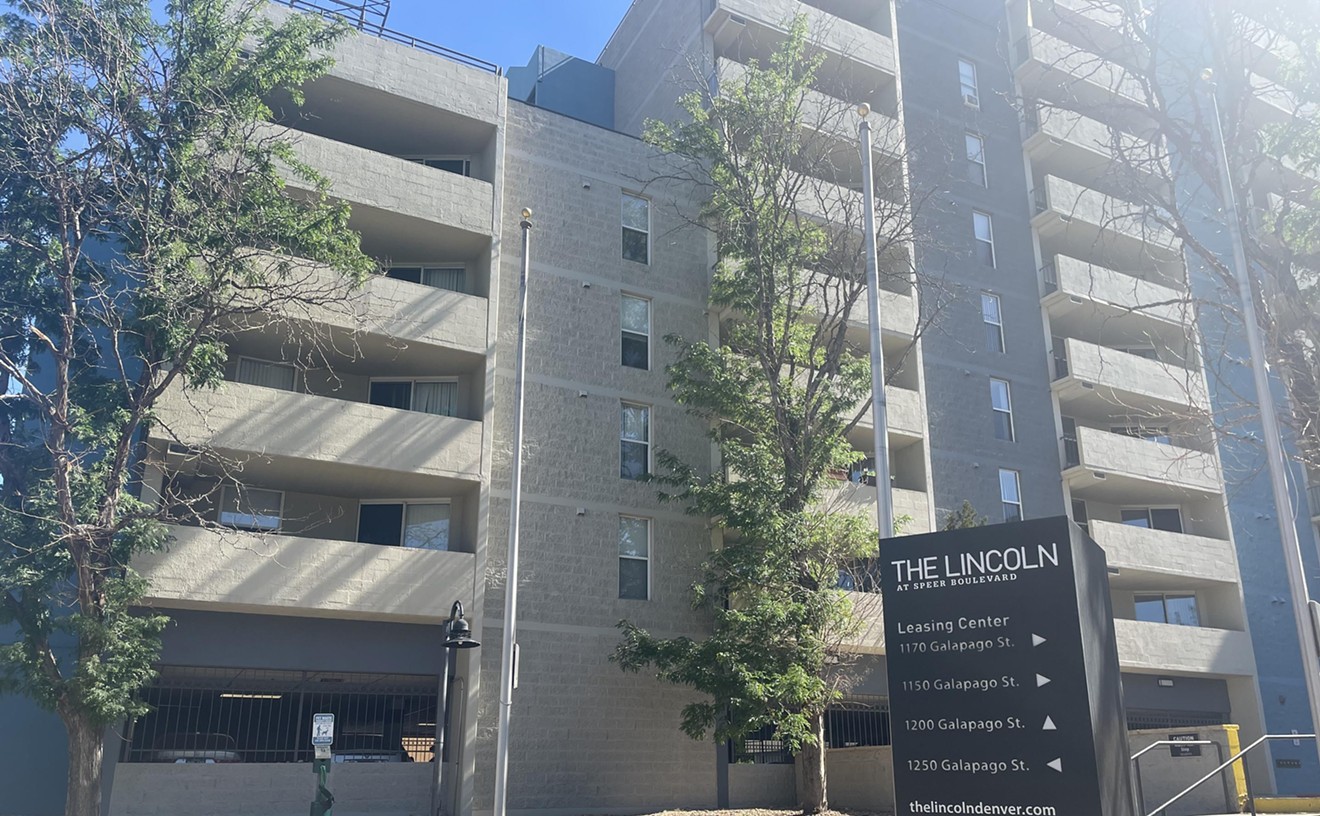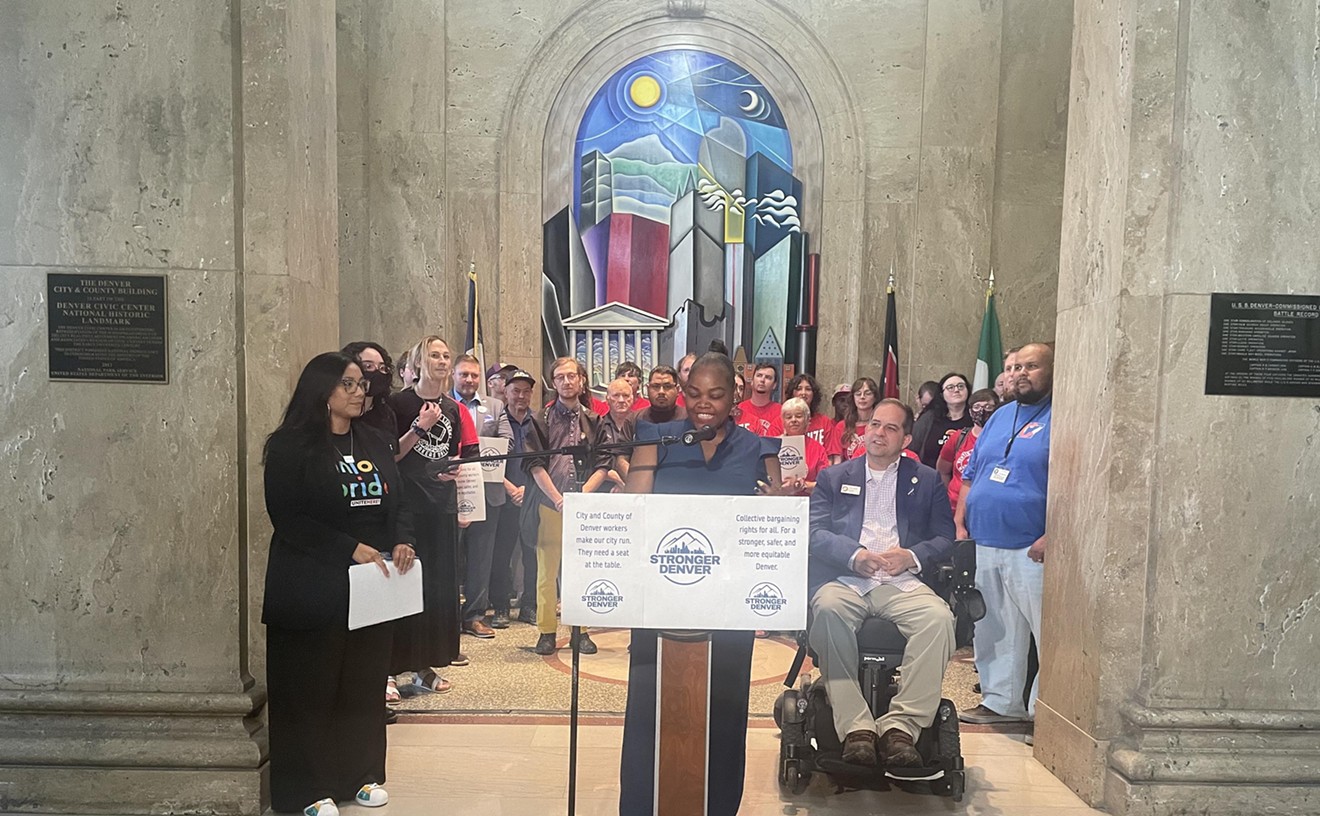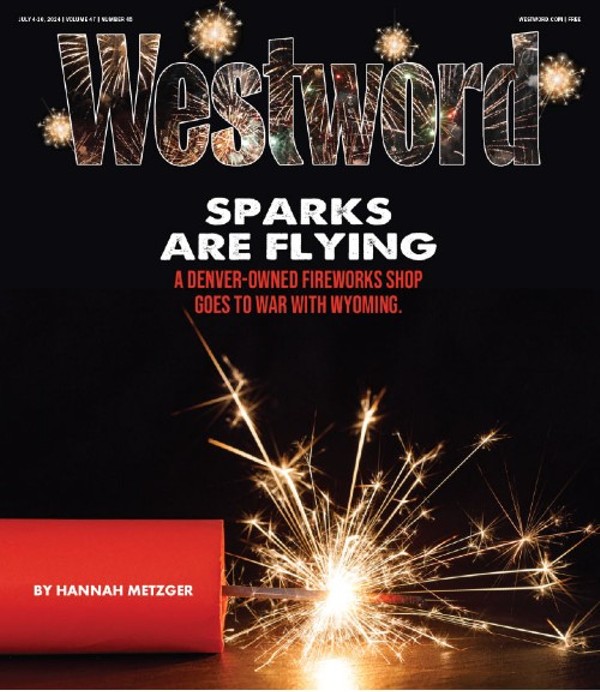"Essentially, just use your imagination," he tells Westword about the things he's seen over the years as the owner of Crime Scene Cleaners, Inc., First Call of Colorado body transport service, the Autopsy Center of Colorado, and Funeral Directors Service, which is one of the largest private third-party cremation and funeral service providers in the state.
Hodgon has seen the end result of decapitations, mutilations, tortures and "people getting chopped up."
"The worst ones are the ones where the body decomposes for several weeks," he says.
Hodgdon describes himself as a "custodian" of death, often talking like an officer manager — propping up his "employee handbook" and "procedure process" for handling crime scenes and Denver's deceased.
"I want to be as professional as possible," he says. "I purposely hire people who don't have experience so I can do fresh, on-the-job training and avoid bad habits. We have a script where we talk to the family, and it's all about showing respect. We are there to make sure they feel comfortable and can trust us when taking Grandma out of the house and handling her. So one thing we do is we show up in a suit and tie every time."
While in the field, there are several things that Hodgdon makes sure his workers don't do or say when around the bereaved.
"Yeah, one is don't drop the body," he says. "And don't walk in and ask, 'Where is the dead body?'"
According to Hodgdon, "death" has its own season. And characteristics, even, from smells to settings.
"It's from October to May," he says. "Winter is when most people die. January is the busiest, right after the holidays."
Another trait of dying, per Hodgdon, is all the familiar places where people are found after passing. "Toilets," he says. "People die on the toilet a lot. And in cars."
Hodgdon says the hardest transports involve moving bodies from the second floors of buildings or higher. "We don't come with handles," he points out.
Emotionally, it can often be transporting the bodies of children that's the toughest, though Hodgdon has found solace in doing so through his religious beliefs. "For me, I have my own personal beliefs that all kids go to heaven," he says. "Their soul is somewhere else, so it gives me comfort. These are the vessels that God gave us, and the person's soul is now gone from it. It's part of how I turn it all off."
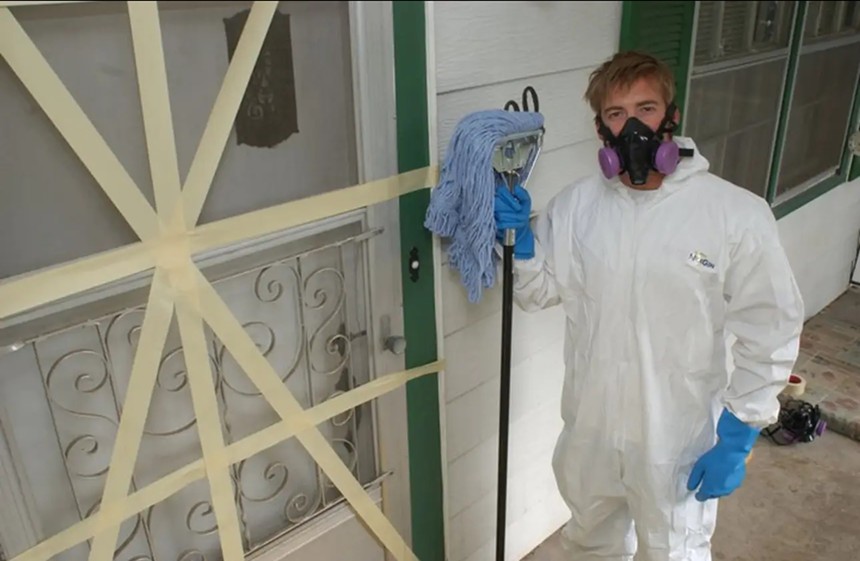
Nick Hodgdon owns multiple businesses related to the death industry and often works with law enforcement.
Nick Hodgdon/Facebook
Shaking Up the Death Business
Over the past few years, a black cloud has formed over Colorado's death and funeral industry, with service professionals from across the state busted or punished in court for despicable behavior toward the deceased, including improper disposal of bodies, sales of body parts and unordered cremations."This industry right now has been painted with a bunch of bad news," Hodgdon says. "I am a custodian of our vessels. We are their advocates. We are the ones in charge of making sure that your grandma, your sister, your brother, they are treated with complete dignity and respect."
Horrific stories of funeral home owners and others in the business desecrating the dead have been cropping up in Colorado since at least 2020, when a Montrose industry worker and her mother were arrested for illegally selling body parts — and, in some instances, entire bodies — out of their funeral home without the consent of the deceased's family.
Operator Megan Hess and her mom, Shirley Koch, of Sunset Mesa Funeral Directors, were sentenced to twenty and fifteen years in federal prison, respectively, for the years-long scheme, which involved meeting with families in need of cremation services and then brokering their loved ones' body parts to buyers without their knowledge.
According to the U.S. Attorney's Office for Colorado, Hess and Koch both admitted to selling parts that belonged to people who tested positive or died from infectious diseases, including Hepatitis B and C and HIV, after telling buyers they were healthy and disease-free.
In October 2023, the Return to Nature Funeral Home in Penrose made national headlines after nearly 200 bodies were discovered inside the property that had been decomposing and improperly stowed away at room temperature.
Eighteen of the bodies couldn't be identified by the Fremont County coroner, according to authorities. Investigators said the remains included adults, infants and even fetuses; 23 of them had death dates from as far back as 2019, and 61 bodies were from 2020.
"There's a special place in hell for these people," Hodgdon says.
Based out of Denver, Hodgdon says there's no place (or lengths) he won't go to to help someone in need of his services.
"I'll go wherever death takes me," he says, noting how he performs forty to fifty body transports a day. "It doesn't matter where. It's all about respect and dignity for me, and just helping those who cannot help or take care of themselves, and that's the deceased."
He also wants to see an "integrity test" in the funeral and death industry.
If you type Hodgdon's name into Google, articles about his involvement in this year's legislative push to regulate his industry will come up. One bill he supported, House Bill 24-1335, now requires chain-of-custody logs and other processes to be carried out when handling the deceased, while Senate Bill 173 now requires licenses for funeral home directors, crematory operators, embalmers, mortuary science practitioners and natural reductionists.
"I testified for the Senate in support," Hodgdon notes. "Just to make sure, 'Hey, when people start writing these laws, let's make sure these things actually work in reality.'"
While Hodgdon has been operating without any formal licensing for years, he believes regulation is ultimately needed to weed out the bad apples of the bunch — but that doesn't mean customers and state regulators should let their guard down.
"Sure, it's nice that we now have these laws to be licensed," he says. "But these assholes can still get a license."
For body transport and crime-scene cleanup, Hodgdon says he relies on his scripts and employee handbooks to get workers through difficult situations and make families feel comfortable.
Moving into the future, he wants to "continue the charge" of being a leading death custodian. Last year, he helped create and launch an app known as MorTrack, which tracks and shows where a person's body is located and transported in real time after they die.
"It's for people who want to know where their loved one is at," he says. "From the feedback we've been getting, customers love it."
Hodgdon tells Westword he's proud of the "echelon of standard" that he's tried to establish in the death industry. He just hopes that others follow in his footsteps.
"I feel like we owe it to the people," he says. "I really take pride in the fact that I've created a standard, and I'm continuing to push the envelope as far as bringing this death industry further into the 21st century."

